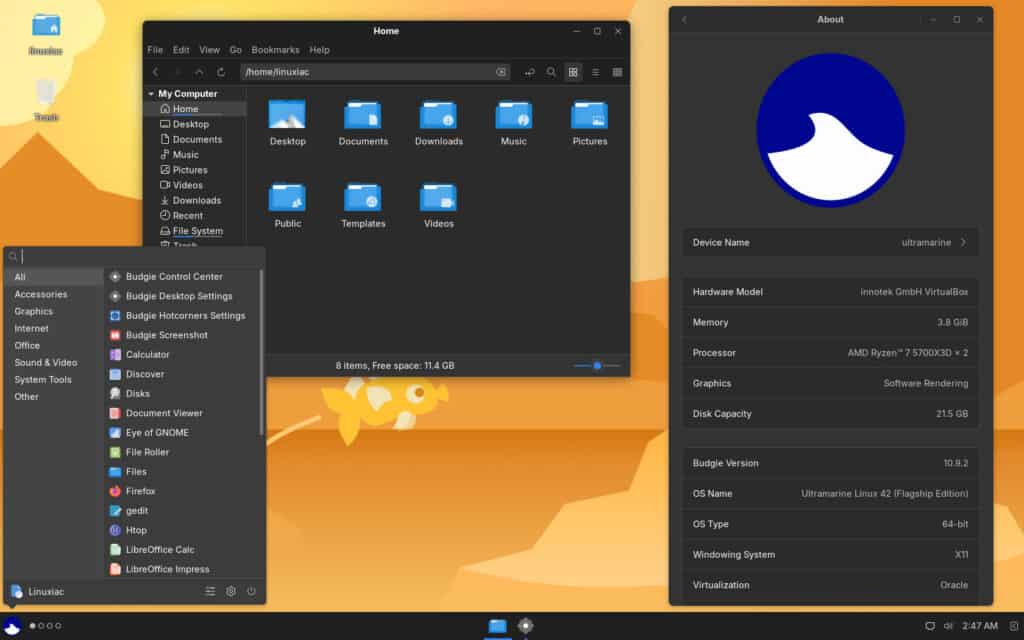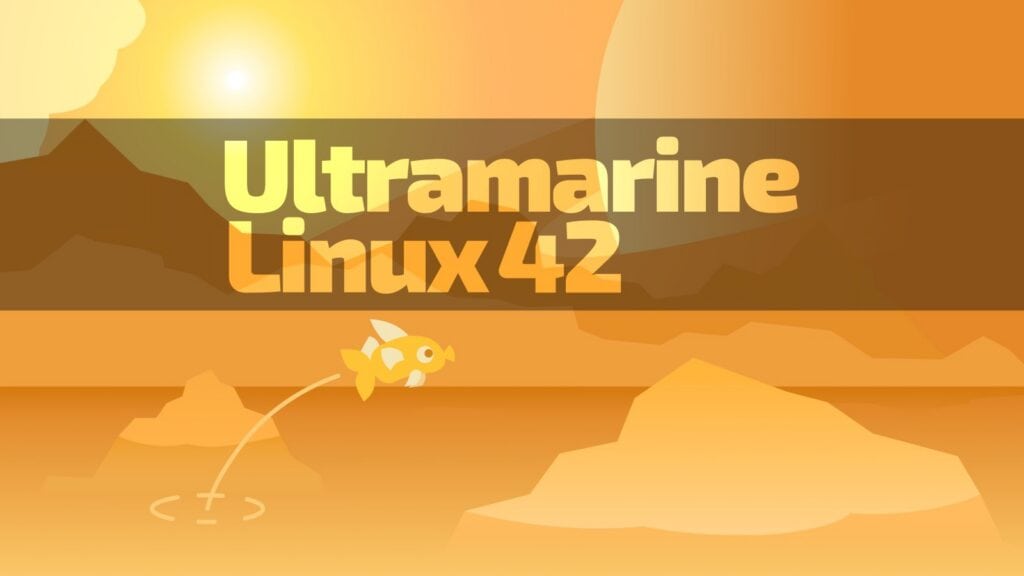Six months after the previous 41 “Cyberia” release, Ultramarine Linux 42 “Heart of Gold” is now out, powered by kernel 6.17. Developed by Fyra Labs, this Fedora-based distro utilises the Btrfs filesystem under the hood and provides a pleasant desktop experience right out of the box, as its Ultramarine Flagship edition ships with Budgie as the default desktop.
The new version is built on Fedora 42, with the headline feature being the added hardware-accelerated WSL support. With that said, users can now run Ultramarine applications inside Windows with direct GPU access, improving performance for graphical workloads.
Ultramarine 42 also continues to improve Taidan, Ultramarine’s out-of-box setup tool, which now provides a smoother, more reliable first-boot experience, simplifying the initial configuration process for newcomers. Developers note that further Taidan enhancements are planned for Ultramarine 44, expected later this winter.
Alongside Ultramarine 42, the project’s Terra repo—its dedicated package build and delivery system—has reached version 43, bringing several backend improvements aimed at speed and efficiency.
On the desktop side, users get Budgie desktop 10.9.2, plus some essentials — Firefox 144, LibreOffice 25.2.6, and Parole Media Player for your multimedia needs.

Build performance has also improved through optimizations in Mock, the system used to build RPM packages. Terra now skips container bootstrapping for certain packages, reducing build times. Meanwhile, builder containers have been slimmed down by roughly 90%, cutting image pull times from about 50 seconds to 20.
Additionally, the development team has expanded the anda-srpm-macros package with new macros and bug fixes to improve RPM packaging consistency across projects.
Lastly, Terra 43 also marks the end of collaboration with Repology, a package tracking service. According to the developers, differences in repository structure created maintenance overhead and inconsistent reporting. Instead, the team now recommends using pkgs.org to explore available packages.
Refer to the announcement for detailed information about all the changes in Ultramarine Linux 42.
